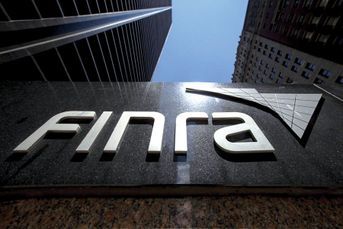LPL may have to refund up to $8 million to resolve New Hampshire REIT case
A third-party review found that 200 clients from the New England state bought nontraded REITs that violated LPL's guidelines and are eligible for an average of $40,000 apiece.
LPL Financial could end up refunding $8 million to clients under a settlement it reached with the the New Hampshire Bureau of Securities over sales of nontraded real estate investment trusts.
LPL and New Hampshire reached the settlement in December 2015. It was spurred by a complaint from an elderly New Hampshire resident who suffered significant losses after purchasing several non-traded REITs through LPL, according to a statement at the time from the securities bureau.
LPL paid a $750,000 fine and offered to pay remediation to any New Hampshire client who was sold a nontraded REIT since 2007 if the sale exceeded LPL’s own guidelines or product specific restrictions. As part of the settlement, LPL was required to hire a third-party to review LPL nontraded REIT sales to determine whether they violated those guidelines.
That third-party recently completed its review and determined that over 200 New Hampshire residents are eligible for remediation of about $8 million, or an average of about $40,000 per client. The $8 million figure represents the total purchase price of the shares of nontraded REITs that were bought by the customers. Clients who still own those shares would have to tender them back to LPL to receive their portion of the settlement.
Individuals eligible for the remediation are to receive letters outlining the offer being made to them by LPL as well as the terms of accepting the offer, according to the state.
“We are pleased to have reached a final resolution with the State of New Hampshire Securities Bureau regarding this matter from 2015,” said company spokesman Jeff Mochal in a statement. “LPL has dedicated substantial resources to improving our processes and technology and enhancing our practices around the processing, sale, and supervision of complex products, and we believe these efforts will lower the firm’s risk profile and provide even greater consumer protection going forward.”
LPL has been dealing with numerous costly compliance issue over the past several years. In January, it was ordered by Massachusetts regulators to pay up to $3.7 million in client restitution and fines as the result of an investigation into sales of unsuitable variable annuities by a former top producing adviser based in Boston. In 2014 and 2015, LPL paid more than $70 million in regulatory fines and restitution to clients.
And LPL has racked up millions of dollars in fines and payments to clients over the sale of nontraded REITs, a high commission product out of favor as the industry adapts to the Department of Labor’s fiduciary rule for retirement accounts.
In September 2015, LPL reached a settlement with state regulators, agreeing to pay a $1.43 million fine and return money to clients for inappropriate sales of nontraded REITs. In February 2013, LPL and Massachusetts agreed to a settlement in which the firm would pay at least $2 million in restitution and $500,000 in fines over sales of nontraded REITs.
Learn more about reprints and licensing for this article.








